Medewerkers met het vakgebied Literatuurwetenschap
Wetenschap ontwikkelt zich waar verschillende vakgebieden samenkomen. Alleen al daarom bestaat er binnen de RUG een grote verscheidenheid aan vakgebieden, met daarbinnen een groot aantal vakspecialisten. Met behulp van onderstaand overzicht, gebaseerd op een vaststaande indeling van wetenschapsgebieden, vindt u op elk vakgebied de juiste deskundige. Komt de deskundige die u zoekt niet voor in deze lijst? Via een vergelijkbaar vakgebied of een gerelateerde faculteit vindt u mogelijk alsnog de juiste persoon.
Overzicht van alle vakgebieden
English and Anglophone Literatures and Cultures; Human and More-than-Human Life Writing; Environmental Humanities; Ecocriticism; Travel and Mobility; Bildungsroman; Children’s Writing; Heterotopia; Diaspora; Transculturality.
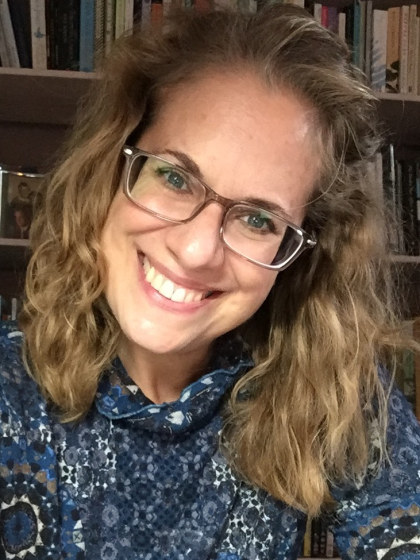
Contact
v.alexander rug.nl
Functie
Universitair docent
Classical Reception Studies, (Neo-)Latin Literature, Intellectual and Cultural History, Early Modern Studies, Renaissance Humanism, The City and Symbol of Rome, Digital Humanities and Book History.

Contact
s.de.beer rug.nl
Functie
Bijzonder Hoogleraar Recepties van de Klassieke Oudheid
English for Academic Purposes, Interdisciplinarity, Dystopian Literature, Climate Change Fiction, Projects

Contact
d.j.beynon rug.nl
Functie
Middle English (Religious) Literature, Late-Medieval Pilgrim Accounts, History of the Book, Material Culture, Devotional Reading Practices, Memorialisation, Testamentary Charity
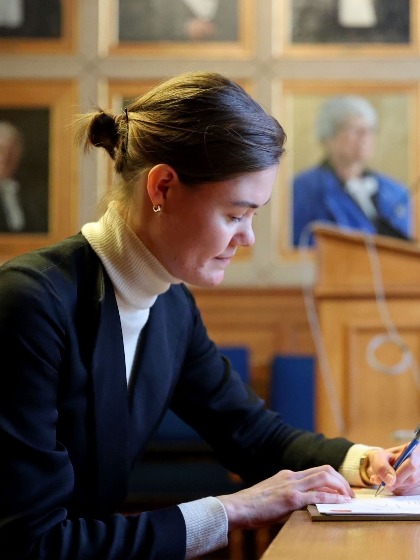
Contact
j.bleeker rug.nl
Functie
PhD Student
Scandinavische letterkunde, cultuur, geschiedenis, dans; onderzoek naar cultuurbemiddeling (cultural transfer and transmission); literatuur en cultuur van minderheden
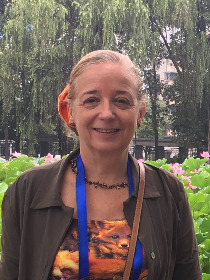
Contact
p.broomans rug.nl
Functie
Universitair Hoofddocent em. Europese talen en culturen (Scandinavisch/Zweeds) met ius promovendi
Cultural memory; populaire cultuur; moderne Duitse letterkunde en cultuur; cultuur van de Weimarrepubliek; intermedialiteit; intertextualiteit
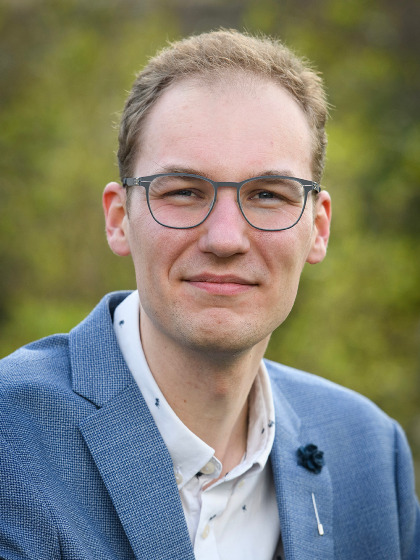
Contact
Functie
PhD student

Contact
j.gallego.benot rug.nl
Functie
PhD student
Vakgebied
Alberto Godioli is Associate Professor in European Culture and Literature at the University of Groningen, and Programme Director of the Netherlands Research School for Literary Studies (OSL). He obtained his PhD in 2012 from the Scuola Normale Superiore... read more
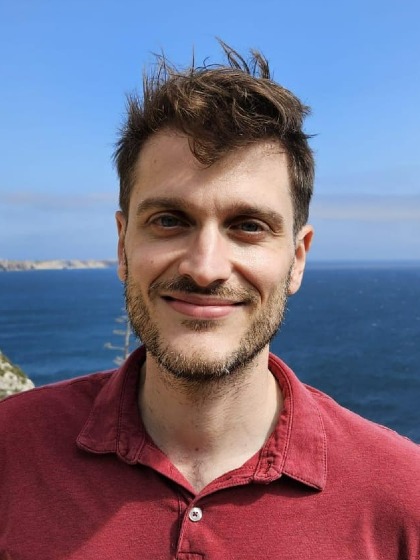
Contact
a.godioli rug.nl
Functie
Associate Professor (with Ius Promovendi)
Romeinse poëzie, comparatieve mythologie


Contact
h.l.m.hermans rug.nl
Functie
Cultuurtheorie; cultuur en cognitie; kunst en cognitie; kunst- en cultuuronderwijs
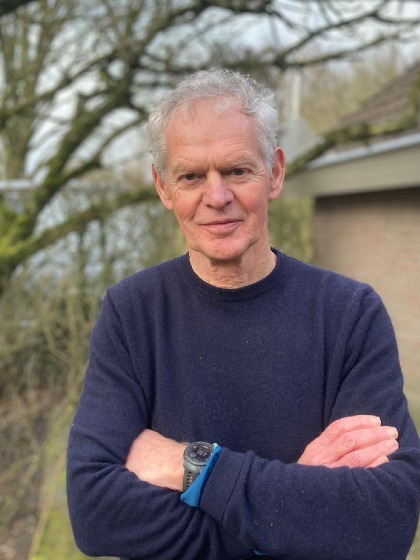
Contact
Functie
Hoogleraar emeritus
Literatuur, Modernism, Women's Travel Writing, and Migrant Fiction
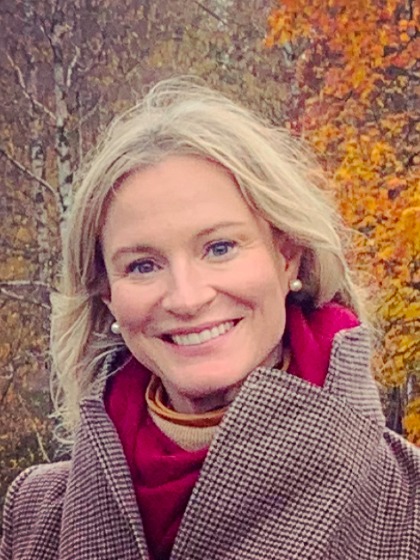
Contact
Functie
Universitair docent
PhD project: "The MacArthur Fellowships and the Making of Contemporary American Literature (2015-2019)" --- Onderzoek naar de politiek van schrijvers die in de jaren 2010 in de Verenigde Staten MacArthur Fellowships wonnen.
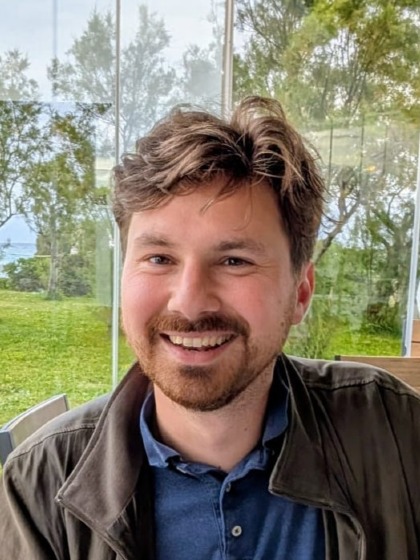
Contact
k.e.hopen rug.nl
Functie
ICOG Funded PhD Candidate 2022-2026
Franse en Franstalige cultuur en literatuur
Populisme in Frankrijk en Nederland
Cultuur en identiteitspolitiek
Gender studies
Populisme in Frankrijk en Nederland
Cultuur en identiteitspolitiek
Gender studies
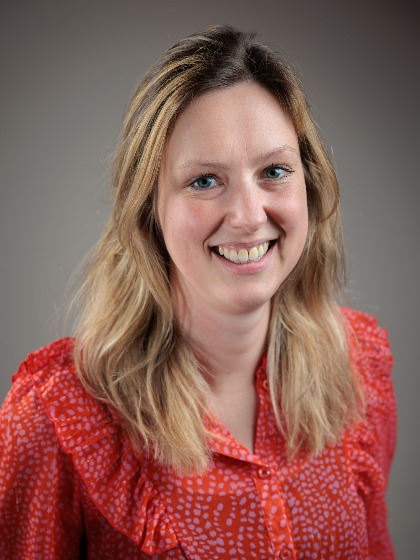
Contact
j.f.jansma rug.nl
Functie
Universitair docent
Narratieve en cognitieve filmtheorie / Digital Film Forensics / (Videographische) Filmanalyse / Complex cinema, Puzzle films
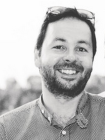
Contact
Functie
Universitair Hoofddocent Audiovisuele Kunst en Cognitie
(lange) negentiende-eeuwse Engelse literatuur en cultuur (roman, gender, populariteit, Empire, realisme, Anglo-Duitse betrekkingen); reisverhalen (vaak met een focus op China/Hong Kong, theorieën over reizen/schrijven); literaire en poëtische theorie... lees meer
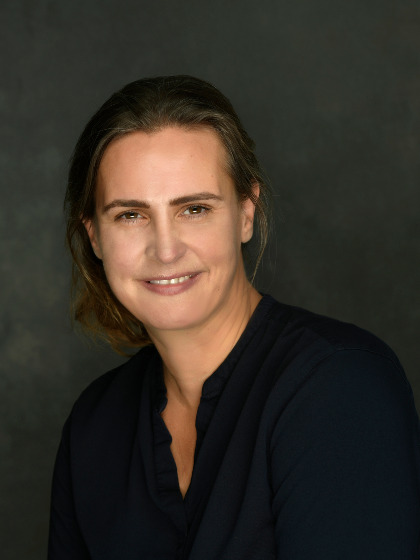
Contact
Functie
Medieval romance; Arthurian literature; Chaucer and Lydgate; dream visions; history of the emotions; gender studies; medical humanities; manuscript studies; literature and law; treason, sleep, and dwarves in Middle English literature; Malory's Morte... read more
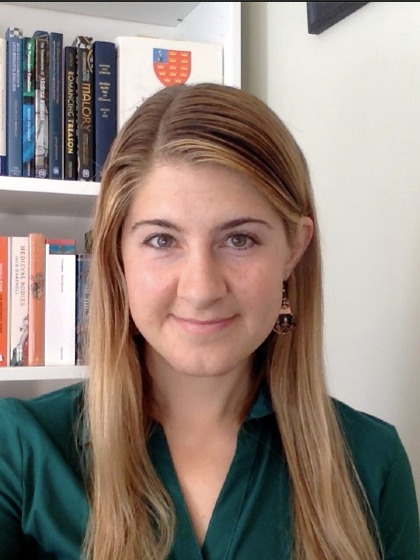
Contact
Functie
Professor and Chair of Medieval English Literature and Culture
Vertaalwetenschap, letterkunde, literatuursociologie, machinevertaling
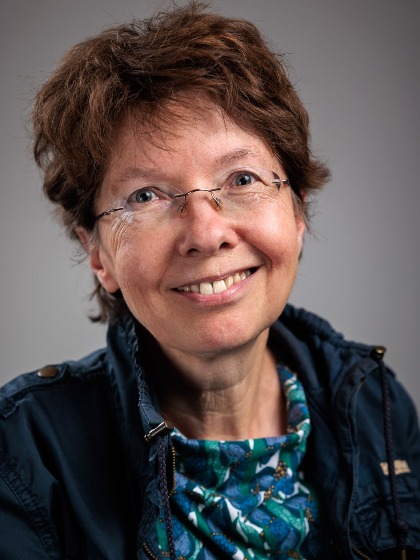
Contact
Functie
universitair docent
Vakgebied
Europese cultuur, Europese crises; culturele productie in tijden van conflict; culturele zelfreflectie; migratie en hedendaagse cultuur; literatuur en film; literatuurtheorie; visuele studies; documentaire film; filmtheorie; sociologie; discourstheorie;... lees meer
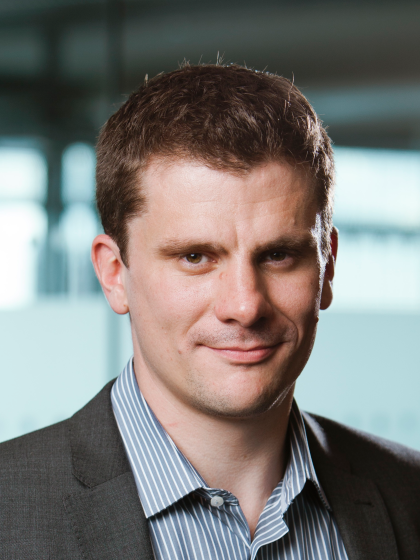
Contact
Functie
Universitair hoofddocent Europese cultuur en literatuur, Directeur Onderzoekscentrum voor de Studie van Democratische Culturen en Politiek (DemCP)
Vakgebied
Gemma López Canicio is Research Fellow in European Culture and Literature at the University of Groningen. Her expertise is in narrative research, emphasizing artistic-narrative communication (literature and cinema), fiction, story-telling, and... read more
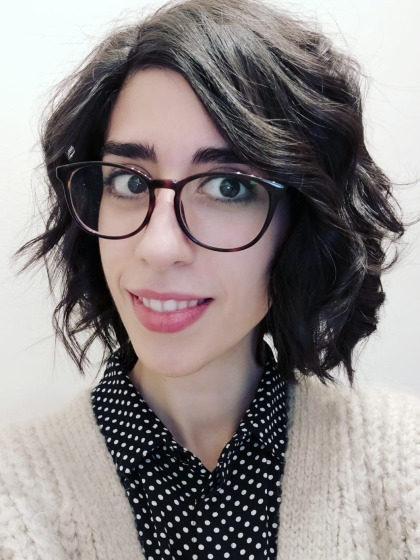
Contact
g.lopez.canicio rug.nl
Functie
Charlie Luypaers is a PhD candidate at the University of Groningen working on the Humour in Court project financed by the Dutch Research Council. They hold a Bachelor’s degree in European Languages and Cultures (with a focus on literary studies and... lees meer
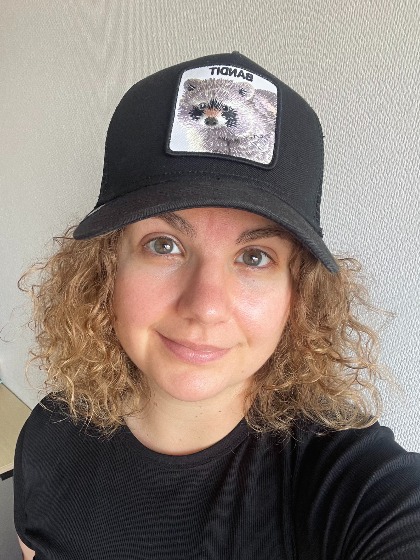
modernisme (literatuur, kunst, architectuur), moderne en hedendaagse Britse literatuur (vooral de literatuur van het midden van de twintigste eeuw), literatuur en de levenswetenschappen, literatuur en politiek, milieu-geesteswetenschappen, het genre roman

Contact
a.k.maher rug.nl
Functie
Universitair Docent
The fiction and literary archives of Ruth Prawer Jhabvala. The prose of Indian writer Kiran Nagarkar and satire in modern Indian literature. Postcolonial Studies in Literature related to former British colonies; diaspora fiction and transnational writing;... read more
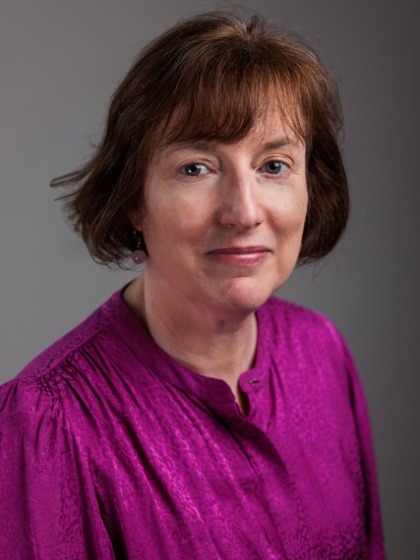
Contact
Functie
Modern English literature, print culture, book history, periodicals, publishing studies, typography, literary modernism, nationalism, James Joyce, popular and genre fiction, contemporary romance, fanfiction, fictional adaptation and appropriation,... lees meer
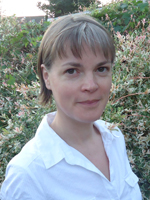
Contact
t.d.mecsnober rug.nl
Functie
Universitair docent
Narratologie, storytelling
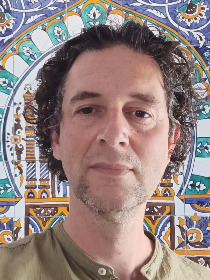
Contact
Functie
Universitair docent
Vakgebied
Internationalisering / International Strategy & Relations
Kwaliteitsondersteuning communiceren in geschreven en gesproken Engels.
Het universiteitsbrede Taal- en Cultuurbeleid. Diversiteit & Inclusie.
ENLIGHT. Zie CV in pdf.
Kwaliteitsondersteuning communiceren in geschreven en gesproken Engels.
Het universiteitsbrede Taal- en Cultuurbeleid. Diversiteit & Inclusie.
ENLIGHT. Zie CV in pdf.
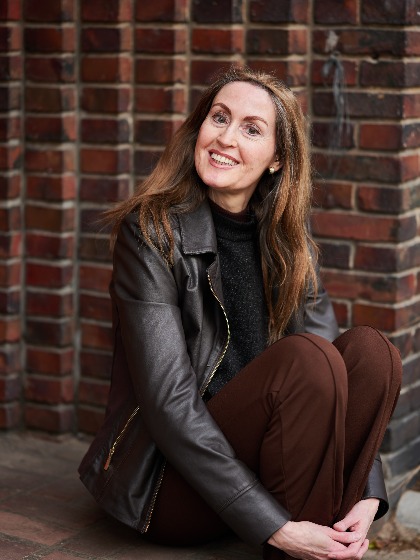
Contact
Functie
Project Manager Taal- en Cultuurbeleid / Docent Engels / Coach Nederlands
Latijnse literatuur
Literatuurwetenschap
Literatuurwetenschap

Contact
r.r.nauta rug.nl
Functie
Emeritus hoogleraar Latijnse taal en letterkunde
grants advice, academic editing, translation, translation studies
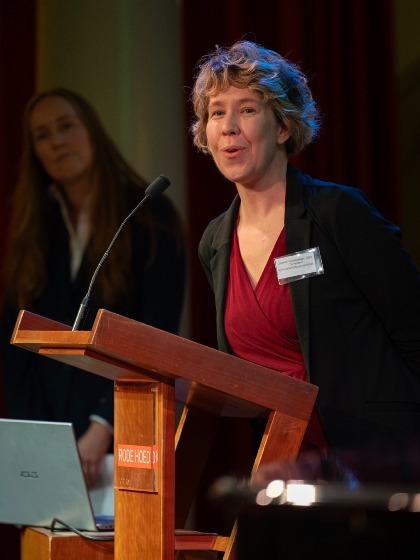
Contact
t.nutters rug.nl
Functie
Funding Officer at the Faculties of Arts and Religion, Culture and Society
Vakgebied
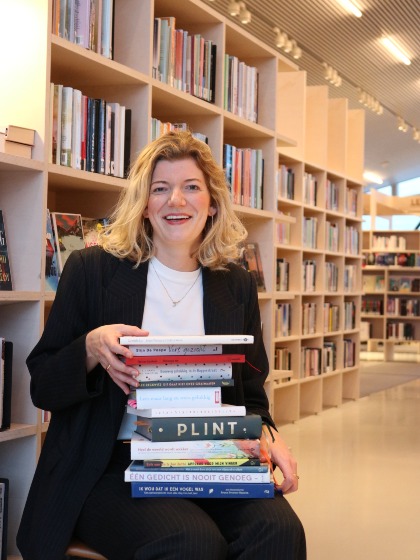
Contact
j.a.oosterheert rug.nl
Functie
PhD student
Computational Linguistics, Computational Literary Studies, Semantic Web Technology, Academic Website here

Contact
Functie
Assistant Professor
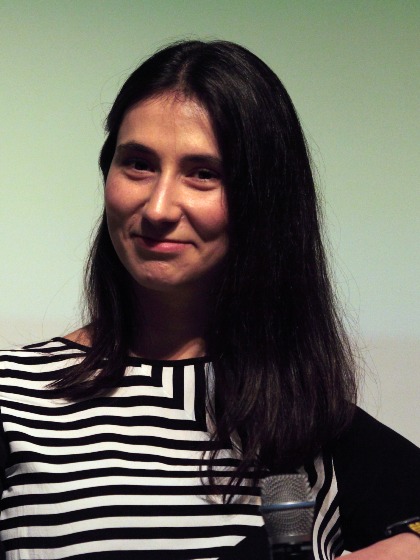
Contact
Functie
PhD Researcher
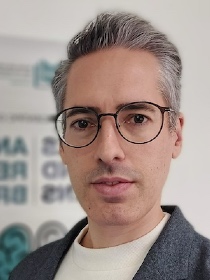
Contact
Functie
Assistant Professor in Computational Humanities
Stripwetenschap; narratologie; English for Academic Purposes; 20ste en 21ste eeuwse Amerikaanse literatuur; graphic narrative; woord en beeld
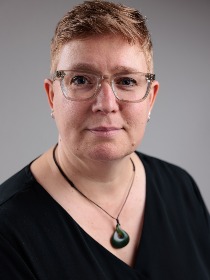
Contact
Functie
Docent
Contemporary Russian/Russophone literature and film
Postcolonial literatures and theory
Memory studies
Postsocialist and postcolonial studies
South African literature and culture
Postcolonial literatures and theory
Memory studies
Postsocialist and postcolonial studies
South African literature and culture
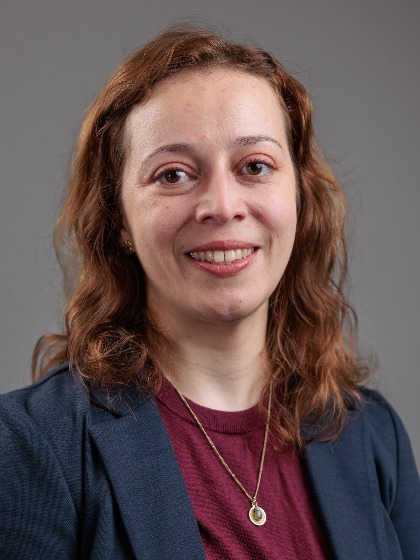
Contact
k.robbe rug.nl
Functie
Universitair docent 1
critical approaches to American literature, art, and media, 1900 to the present; modernism; utopia in literature, theory, and history; the culture of politics and politics of culture in the 21st century
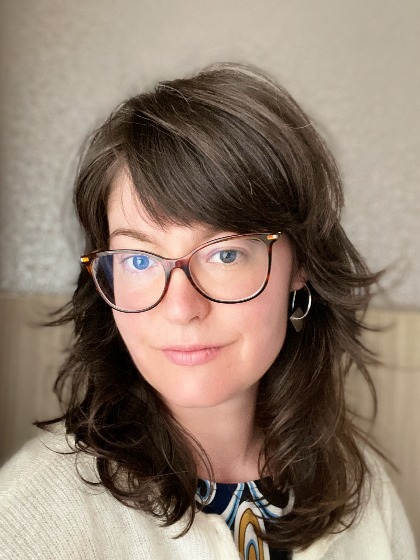
Contact
Functie
Universitair Docent 1
Nederlandse literatuur van de twintigste en eenentwintigste eeuw in internationale context; literatuur en ecologie; hedendaagse poëzie
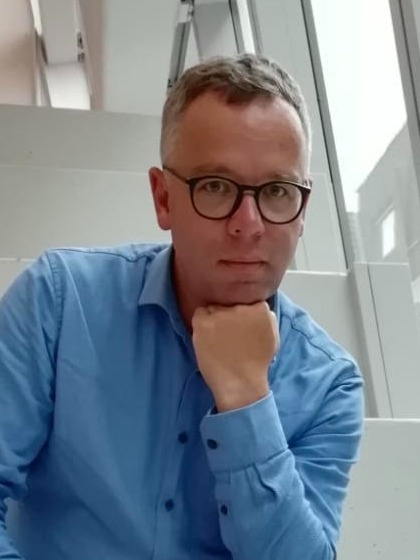
Contact
Functie
postcolonial theory, diaspora studies, memory studies, life writing, Middle East studies

J.D. Schnepf's current research focuses on the literature and culture of the US security state, surveillance technologies, extractive infrastructures, domestic labor, and the War on Terror. Her writing has appeared and is forthcoming in academic journals... read more
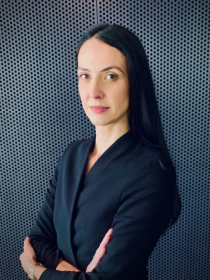
twentieth-century literature, post-war American poetry, modernism, magic and witches from Shakespeare to twentieth-century literature and popular culture, environmental humanities, particularly poetry and ecology
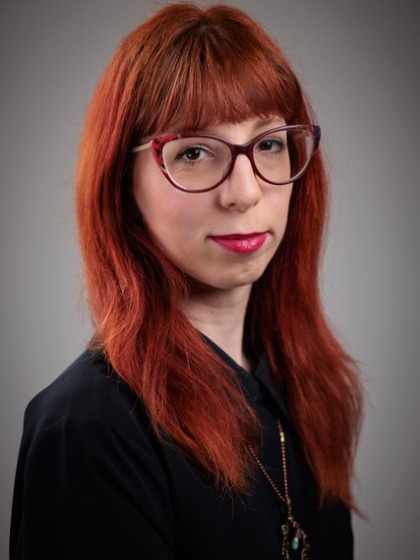
Contact
d.tamas rug.nl
Functie
Docent
Franse en Franstalige contemporaine Literatuur en Cultuur; Canadese Studies; Representatie van ruimte in de contemporaine roman in Québec; Frans-Iraanse vrouwenliteratuur; Migranten en Minderheidsliteraturen; Gender Studies; Identiteit en ballingschap;... lees meer
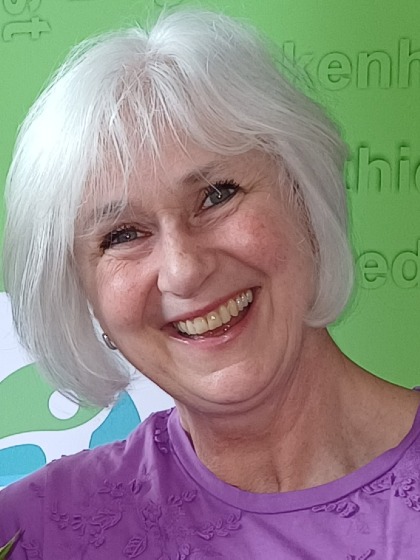
Contact
Functie
Universitair Docent / Directeur Centrum voor Canadese Studies
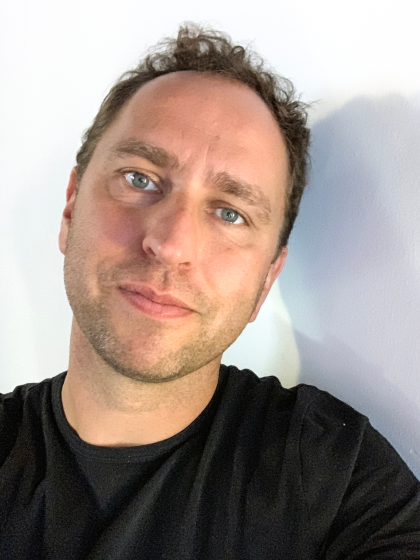
Contact
Functie
PhD student
Pablo Valdivia is Chair-Full Professor of European Culture and Literature (University of Groningen), Director Groningen Research Institute for the Study of Culture ICOG (University of Groningen), Accreditated Full Professor [Catedrático Universidad] of... read more
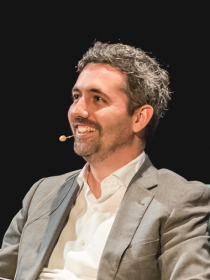
Contact
p.valdivia rug.nl
Functie
Vera Veldhuizen werkt als universitair docente bij zowel Europese Talen en Culturen en Kunst, Cultuur en Media aan de Rijksuniversiteit Groningen, Faculteit der Letteren. Hiervoor deed ze haar promotieonderzoek in jeugdliteratuur aan Cambridge... lees meer
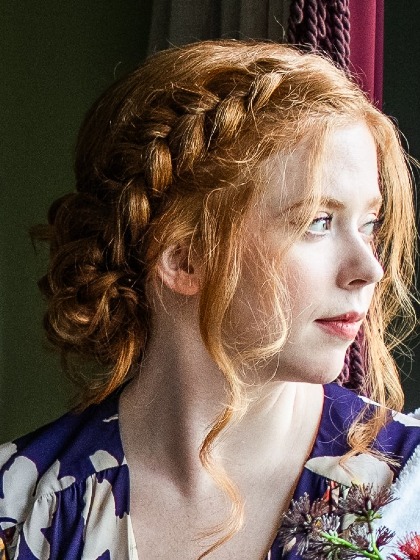
Contact
Functie
Universitair Docent
Visser is a member of the Dutch Literary Society (Maatschappij der Nederlandse Letterkunde); member of the Royal Dutch Society of Sciences (Koninklijke Hollandsche Maatschappij der Wetenschappen); member of the Deutscher Germanistenverband-Gesellschaft für Hochschulgermanistik and member of the Netherlands Graduate School for Literary Studies (OSL).
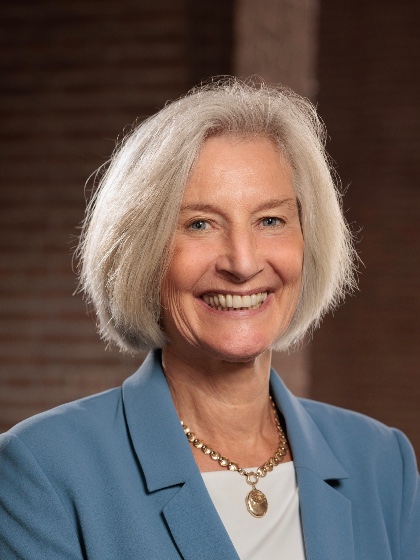
Contact
Functie
Decaan Faculteit der Letteren/Hoogleraar Moderne Europese, i.h.b. Duitse, Literatuur en Cultuur
Institutionele benadering van de moderne Nederlandse letterkunde, jeugd- en Y.A.literatuur, professionalisering en internationalisering van het literaire veld, leescultuur, uitgeverijonderzoek en boekwetenschap.
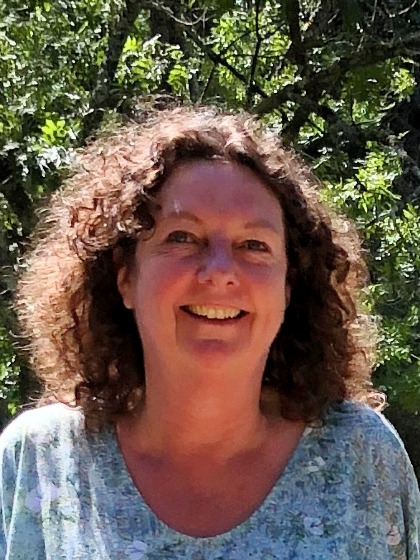
Contact
Functie
Universitair docent
toxicity, ecocriticism, time studies, nuclear aesthetics, cultural analysis, the body
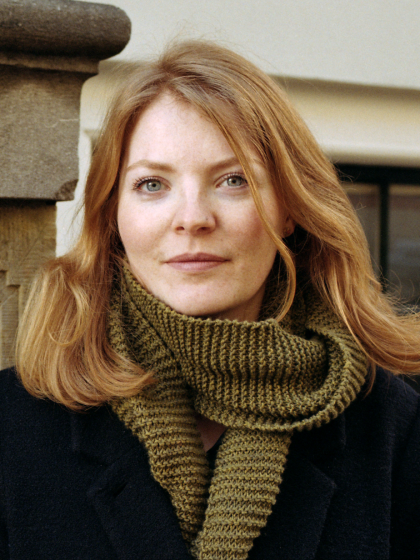
Contact
r.e.de.vos rug.nl
Functie
Lecturer
Postcolonial European cultural identity, South African culture, the Afrikaans literary field and the public sphere. Transnational cultural production. Interdisciplinary project-based education.
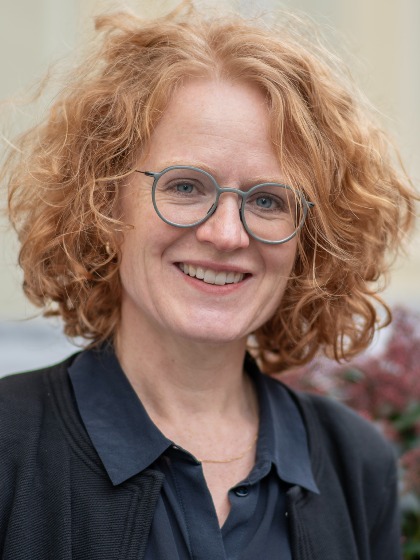
Contact
Functie
Associate Professor and Director of Studies Erasmus Mundus Master Euroculture: European society, culture, and politics in a global context. Also Endowed Chair of South African literature, culture and history (University of Amsterdam)
Film & Media Studies | Narrative Studies & Narratology | Arts & Cognition | Empirical Aesthetics|
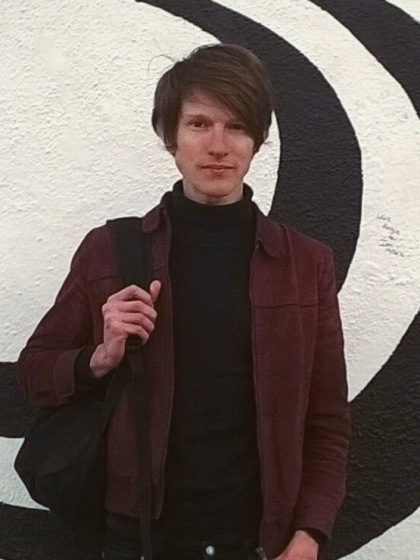
Contact
Functie
Universitair Docent - Kunst & Cognitie
Alexander Williams is a PhD candidate at the Institute for the Study of Culture (ICOG), University of Groningen. By focusing on survivor testimonies concerning the former the Aktion Reinhardt extermination camps—Bełżec, Sobibór and Treblinka—his research... read more

Contact
a.a.g.williams rug.nl
Functie
PhD Candidate and Lecturer on the Holocaust and Nazi Germany
Vakgebied
Sociolinguïstiek, Psycholinguïstiek, Taalverandering- en variatie, Morfosyntaxis, Genderstudies, Literatuurwetenschap
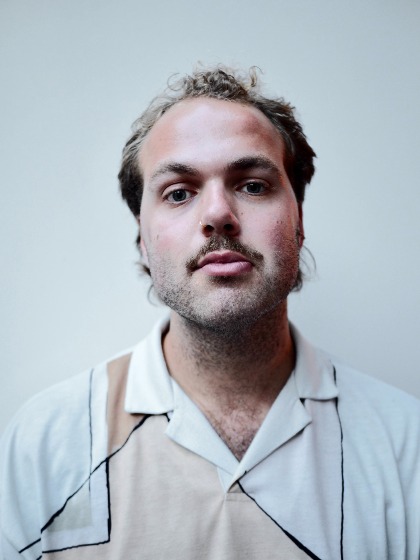
Contact
s.w.zelhorst rug.nl
Functie
Promovendus
View this page in: English
